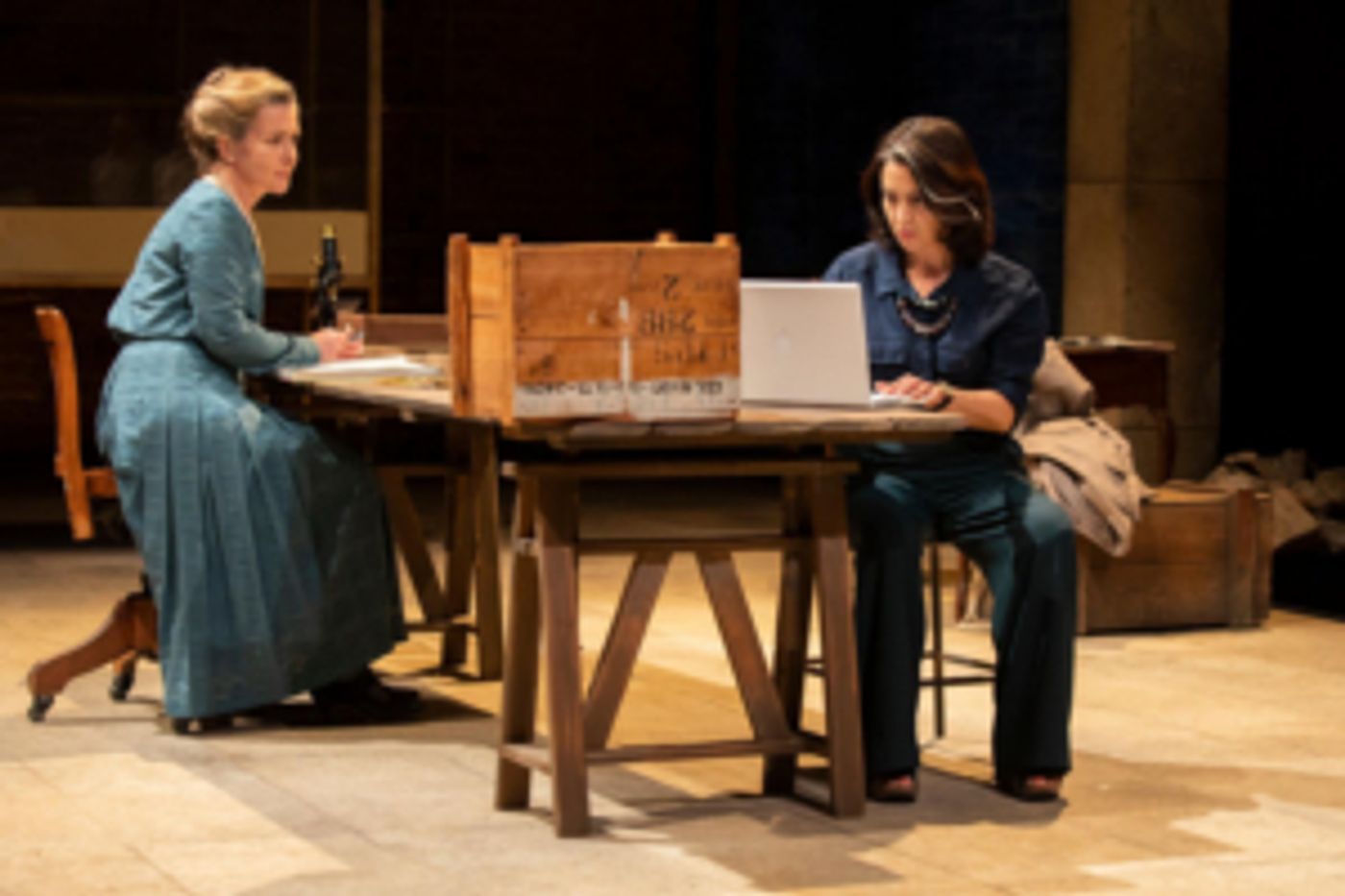Review: A MUSEUM IN BAGHDAD, Swan Theatre, Stratford upon Avon

![]() Colonialism - past and present - provides the backdrop (sometimes more than that) for Hannah Khalil's new play, A Museum In Baghdad. We flit backwards and forwards across time as two women, with more in common than they might have imagined, try to get the eponymous institution ready for its grand opening / reopening. Meanwhile, in 2006 as much as 1926, the militias surround them, the state (possibly) too fragile to trust with such priceless artefacts. But if not there, where?
Colonialism - past and present - provides the backdrop (sometimes more than that) for Hannah Khalil's new play, A Museum In Baghdad. We flit backwards and forwards across time as two women, with more in common than they might have imagined, try to get the eponymous institution ready for its grand opening / reopening. Meanwhile, in 2006 as much as 1926, the militias surround them, the state (possibly) too fragile to trust with such priceless artefacts. But if not there, where?
Emma Fielding plays Gertrude Bell, one of those "explorers" who grew up posh in Victorian times and then travelled in The Colonies listening and learning (and, no doubt, reporting back). Like many such individuals, she displayed courage and commitment in her work, and developed an empathy for the locals, but I doubt she was ever as progressively 21st century in attitudes as the play asserts. She was (how could she not be) close to "the authorities" throughout her life.
As she assembles what will become the exhibits of the museum - a project that seeks to provide a shared history for the er... shifting sands of Mesopotamia over millennia and an origin story for the new state of Iraq - she bickers, at some length, with Leonard Woolley (David Birrell), a Brit with a shovel and eye for the main chance. A British compromise emerges with some stuff going to London and some stuff staying put.
On a shared stage, Rendah Heywood plays Ghalia Hussein, the 2006 museum director, trying to reassemble the collections after they were looted on the fall of Saddam and the non-appearance of any functioning state in the chaos that followed. Fakes abound, but some of the real stuff is returned, guilty consciences doing their job.
Both women become exasperated as the scale and difficulty of the tasks they set themselves overwhelm them, colonialism's long tail cracking and slapping like that of an angry Euphrates River crocodile, muzzled but dangerous all the same.
Riad Richie and Houda Echouafni play a pair of assistants to Dr Hussein, but their love affair never gets off the ground and their main function appears to be to provide softer and harder perspectives on the question of retaining or exporting the artefacts and on whether they should be a priority at all in a failing state.
Debbie Korley gives it her all in an underwritten role as an American soldier who shows us that the legacy of colonialism is no less present in 21st century USA and Rasoul Saghir drifts in and out of both timeframes, a symbol of the people who were always there and will always be there.
It's a heady mix (and the script has been some ten years in the writing making it headier still) but the most crucial element of any play - the drama - too often slides out of the picture and we're left with a worthy, but ever so dull, exchange of views laden with grinding exposition. Potentially interesting relationships become vehicles to present policies not persons, backstories are reported in imploring us to say "So that's why she's like that" and, even if we didn't know what happened to Ms Bell, it's in the programme anyway.
Oguz Kaplangi's music, splendidly played by the band, injects some much needed changes in tone, but Erica Whyman's direction places the characters too often behind desks or computers, arguing. I'm not suggesting that Indiana Jones turn up with whip and sword, but there are times when one feels one has stumbled into a breakout room at an international curating symposium.
And it shouldn't really feel like that, because these are vital questions for the here and now (for example, Egypt's extraordinary treasures are increasingly neglected after the collapse in tourism revenue), but this play, as dry as the desert sand that clings to the tablets waiting to be catalogued, plods through the issues, leaving us longing for the oasis of crisp Autumnal air.
A Museum In Baghdad is at the Swan Theatre, Stratford Upon Avon, until 25 January.
Photo Ellie Kurttz
Reader Reviews
Videos
